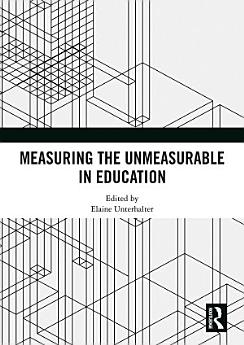Measuring the Unmeasurable in Education
Tungkol sa ebook na ito
This book explores how we can understand measurement in areas of education policy, planning, and practice that have not previously been considered measurable. The contributors ask four main questions: What do we measure and not measure when we try to measure the unmeasurable in education? When attempts have been made to measure the unmeasurable in education, what metrics have been adopted in which contexts, and with what outcomes? Why have measures been adopted as indicators of the unmeasurable, such as human rights? And how have particular organisations approached the problem of measuring the apparently unmeasurable in education, with what epistemological, normative, and conceptual resources, and consequences?
The book draws on analyses from philosophy, history, sociology, and economics, with insights from national and international contexts. The contributions consider philosophical distinctions, historical experiences, and contemporary reflections on how to refine existing approaches to measurement of poverty, capability, rights, and the benefits of education. The discussion shows how measuring the unmeasurable takes account of the inequalities, complexities and uncertainties of work in education, thus suggesting a considerable deepening of the notion of education quality and measurement.
This book was originally published as a special issue of Comparative Education.
Tungkol sa may-akda
Elaine Unterhalter is Professor of Education and International Development at University College London, UK and Co-Director of the Centre for Education and International Development. She has written extensively on global education policy making, with a particular interest in equity in practice and the politics of measurement. Her book, Education, Poverty and Global Goals for Gender Equality (with Amy North, 2017), looks at how the measurement of poverty, education, and gender equality is interpreted by practitioners in a range of international, national, and local organisations.






